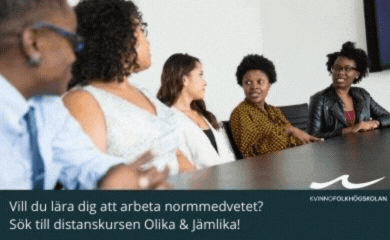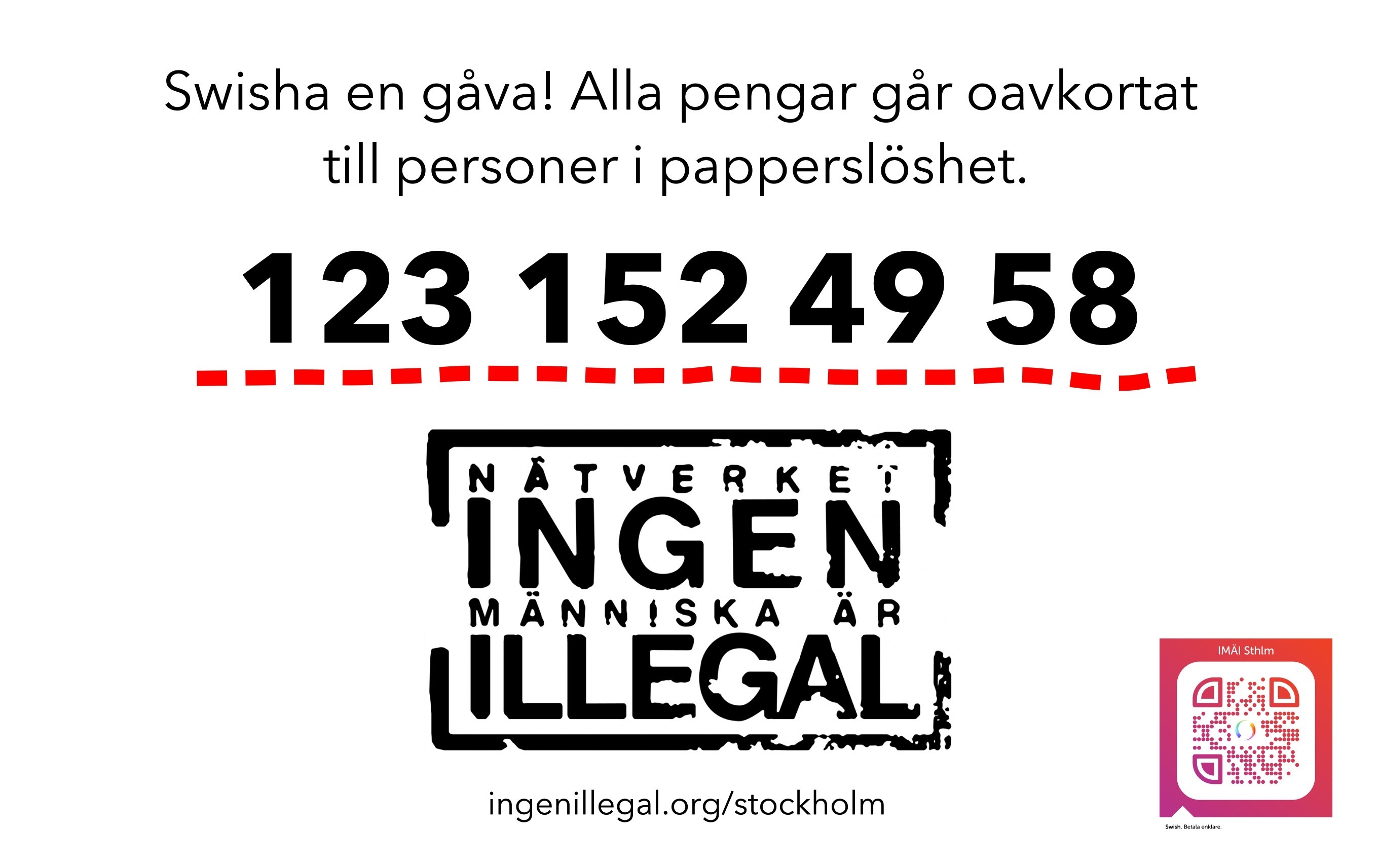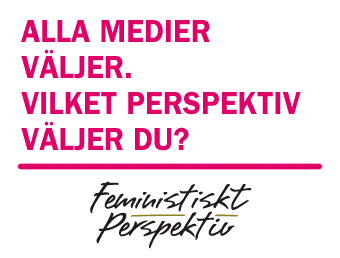Fokus på beskydd av kvinnor hinder för delaktighet?
2011-01-14 | Jenny Rönngren

UTRIKES
FN:s säkerhetsråds nyligen antagna resolution 1960 talar enbart om kvinnor som offer. Risken finns att bekämpning av symptom får överskugga det grundläggande problemet när det gäller kvinnor, fred och säkerhet. FemPers publicerar ett öppet brev från freds- och kvinnorättsaktivister till FN:s säkerhetsråd.
Det befarar Maud Edgren-Schori, som varit FN:s gender adviser i Elfenbenskusten.
– Jag säger inte att det är så, men risken finns. Om vi fokuserar för mycket på symptomet och alldeles för lite på grundproblemet spelar vi de krafter som vill ha det så i händerna, säger hon och poängterar att fortfarande finns en stor okunskap och mycket kvar att göra när det gäller den grundläggande resolutionen 1325, som antogs för tio år sedan. Den talar om kvinnors rätt till medverkan i förhandlingar, beslut och processer som rör fred och säkerhet.
– Du kan komma med hur många resolutioner som helst men det är 1325 som är grunden, om inte kvinnor deltar får vi varken slut på våld eller någonting annat. Vi måste göra könet synligt för att kön inte ska betyda något. När resolution 1960 antogs var det civila samhället inte involverat överhuvudtaget, säger Maud Edgren Schori.
Hennes erfarenheter från Irak och Georgien visar att kvinnors medverkan fortfarande får stå tillbaka på grund av den rådande okunskapen:
– Hela tiden säger man att "vi måste göra det viktiga först. Det är oerhört viktigt att ha en generalsekreterare och ett säkerhetsråd som är övertydliga med detta, kvinnors deltagande måste gälla i alla sammanhang.
Därför har hon tillsammans med en rad andra freds- och kvinnorättsaktivister skrivit ett öppet och bekymrat brev till FN:s säkerhetsråd. Nedan publicerar Feministiskt Perspektiv brevet i sin helhet:
OPEN LETTER TO MEMBER STATES OF THE SECURITY COUNCIL
Re: Res 1960
7 January 2011
Subject: UNSCR 1960 and the need for focus on full implementation of UNSCR 1325
Excellency,
In October 2010 the world observed the 10th anniversary of UNSCR 1325 on Women and Peace and Security. An unprecedented number of member-states spoke in the Security Council, the majority declaring their commitment to ensuring the equal and effective participation of women in decision making for the prevention and resolution of wars and violence. Civil society also strongly reaffirmed its determination to realize in the coming years the enormous potential of that resolution in this regard.
We believe it is essential to ensure that regular consultations are undertaken with women's civil society organizations. The implementation of UNSCR 1325 as well as of any subsequent resolutions relating to women and peace and security will only be effective through involvement of women and civil society organizations.
In that context, we are concerned that women’s right to full participation in all matters of peace and security is being overlooked as women are increasingly being seen and treated mostly as passive victims of violence and abuse. We call for women’s full equality and participation at all levels of decision making as envisaged in UNSCR 1325.
Also, as we enthusiastically welcome the establishment of UN Women, we call upon this new entity to include the full implementation of UNSCR 1325, including its financing and accountability mechanisms, as one of its top priorities. We also note with great satisfaction the appointment of SRSG Margot Wallström who has brought a passionate concern for the plight of women in times of conflict.
Rape is the worst crime that women or men can endure and survive. The trauma lasts a lifetime and has ripple consequences of ostracism from family and community as well as physical damage. The Rome Statute of the International Criminal Court (ICC) calls rape during war a crime against humanity. It is at once a crime and a symbol of the continued objectification of women and the denial of the power and agency recognized in UNSCR 1325.
The process of the recent adoption of UNSCR 1960 sponsored by governments without consultation with women on the ground is a case in point. It speaks only of women as victims of sexual abuse during violent conflict and does not mention that if women were recognized as participants in decision making they would be less vulnerable to attack. If governments would involve more women and worked harder to prevent wars there would be less sexual abuse. If small arms were regulated and reduced by involving women in the decision making there would be less sexual violence. If the UN leadership and its member states involved women more systematically in conflict prevention and resolution - the real focus of 1325 - there would be a marked improvement in peace and security for everyone.
These issues of women’s participation, of prevention of violence and reduction of weapons cannot be left out of any resolution on women and peace and security. Reference to the full implementation of UNSCR 1325 must be substantively integral to any subsequent resolutions of the Security Council on women, not just a passing reference in preambular paragraphs to this foundational and fundamental document.
We cannot pluck rape out of war for our attention and let the war go on. We must be passionate about preventing and stopping wars, and about recognizing the equal right of women to seats at all tables where decisions are made. Rape will be reduced when violence is reduced and when women are taken more seriously and treated equally in all decisions on the fate of humanity. If UN member states, particularly those represented in the Security Council, are serious about their commitments to women's equality and to stopping rape and violence, they would individually and collectively ensure outreach to women and their full participation at all decision making levels in all arenas where issues of peace and security are being decided.
We thank you for your kind attention to these views with regard to your work on women and peace and security. We are willing to meet with you and discuss future course of action on this issue.
Sincerely,
Cabrera-Balleza, Mavic; Global Network of Women Peacebuilders
Naraghi Anderlini, Sanam; International Civil society Action Network
Adamson, Lyn; Canadian Voice of Women for Peace
Adda-Dontoh, Becky; Mothers for Active Non-Violence – Ghana
Akibayashi Kozue; Feminist Scholar/Activist Network on Demilitarization
Alton, Janis and; Canadian Voice of Women for Peace
Basnet Babita; Sancharika Samuha – Nepal
Bitsure Jeanne; Women Peacemakers Programme, Women and Allies Peacebuilders Network – Burundi
Bhagwan Rolls, Sharon; femLINKPACIFIC – Fiji/Pacific; International Steering Group, Global Partnership for the Prevention of Armed Conflict
Breyer, Chloe; Rev. Interfaith Center of New York
Dharmadasa, Visaka; Association of War Affected Women – Sri Lanka
van Doggenaar, Jan; ICCO and Kerk in Actie - the Netherlands
Dwyer, Tatiana; Global Justice Office, Women’s Division, General Board of Global Ministries, United Methodist Church
Edgren-Schori, Maud; Former Gender Advisor in Côte d ́Ivoire
Feminist International Radio Endeavour (FIRE) – Costa Rica
Fountain-ISOKO for Good Governance and the Integrated Development – Burundi
Fone, Wenche; Norwegian Church Aid
Garlo, Cerue Konah, Liberia
Gautam, Shobha; Institute of Human Rights Communication and National Women
Security Watch Group – Nepal
Guerrero, Patricia; Liga de Mujeres Desplazadas – Colombia
Geuskens, Isabelle; IFOR Women Peacemakers Program - the Netherlands
Grönberg, Helena; Global Network of Women Peacebuilders
Hans, Asha; Sansristi Center for Gender Development – India
Haartje Maren; PeaceWomen Across the Globe
Hara, Hiroko; Japan Women's Watch, Asia Pacific
Women's Watch
Holter, Thora; Norwegian Church Aid
International Peace Bureau
Kanyange, Perpetue; Centre Des Femmes Pour La Paix – Burundi
Korir, Selline; Rural Women Peace Link – Kenya
Kottegoda, Sepali; Asia Pacific Women's Watch
Jenkins Tony; International Institute of Peace Education
Lauzon-Gatmaytan, Carmen; Asian Circle 1325 – Philippines
Lynch Jake; International Peace Research Association
MacNichol, Sally N. Rev. Dr.; CONNECT, New York City
Matriano, Estela; World Council for Curriculum and Instruction
Mazali, Rela; Activist and Feminist Writer
McPhedran, Marilou; Institute for International Women’s Rights
Mesa, Manuela; centro de education e investigacion para la paz – Spain
Milner, Michele; University of Central Lancaster – UK/China
Nakamura, Mitchiko; Japan Women's Watch
Asia Pacific Women's Watch
Nario–Galace, Jasmin; Center for Peace Education, Miriam College – Philippines
Nazim, Afifa; Afghan Women’s Network
Nduwayo, Gerard; International Consultant on UNSCR 1325 – Burundi and Great Lakes Region Observatorio Género Democracia y Derechos Humanos – Colombia
Okioma, Mary; Women for Justice in Africa – Kenya
Perera, Viola; Women's Media Collective - Sri Lanka
Pratt, Nana; National Organization of Women, Mano River Women’s Peace Network – Sierra Leone
Price, Lisa S; Independent researcher/writer
Rana, Bandana; Saathi – Nepal
Rasul, Amina; Philippine Center for Islam and Democracy
Reardon, Betty; International Institute of Peace Education Red Latino Americana y del Caribe para la Democracia – Colombia
Rubimbwa, Robinah; Center for Women in Governance – Uganda
Salamanca, Rosa Emilia; Corporación de Investigación y Acción Social y Económica – Colombia
Samuel, Kumudini; Development Alternatives with Women for a New Era
Sharpe, Albie; Feminist Scholar/Activist Network on Demilitarization
Schori, Pierre; Former Special Representative of the Secretary-General, UNOCI
Shieh, Vincent; President, World Council for Curriculum and Instruction Suralaga, Dewi; Cordaid – the Netherlands
Toupin, Sophie; Center for Peace Missions and Humanitarian Studies at the Raoul Dandurand Chair of Strategic and Diplomatic Studies at the University of Quebec at Montreal Voice of the Voiceless – Liberia
Wenden, Anita; International Peace Research Association Weiss, Cora; Hague Appeal for Peace Yiping, Cai; Isis International – Philippines
Zawilski, Valerie; University of Western Ontario, Canada
Zedriga, Lina; Women and Peace and Security Advocate; International Consultant for Kenya NAP on UNSCR 1325
Chowdhury, Anwarul; Ambassador, Former UN Under-Secretary-General and President of the Security Council (March 2000 & June 2001)
(Organizations listed for identification only)
Copy to:
H.E. Mr. Ban Ki-moon, Secretary-General of the United Nations Dr. Michelle Bachelet, Under Secretary-General, UN Women
Ms. Margot Wallström, Special Representative of the Secretary-General on Sexual Violence
Mr. B. Lynn Pascoe, Under-Secretary-General, UN Department of Political Affairs
H.E. Mr. John McNee, Ambassador and Permanent Representative of Canada in his capacity as the coordinator of the Friends of 1325 with the request to circulate the letter to all members of the group
Kommentarer
Du måste vara inloggad för att kunna lämna en kommentar.
























MEST KOMMENTERAT
SENASTE KOMMENTARERNA
Om Var Grupp 8 en feministisk organisation?
Om #bildskolan 21: Att äta Den Andre
Om #bildskolan 21: Att äta Den Andre
Om Porr handlar om betalda övergrepp
Om Nobels fredspris till kampanj för att avskaffa kärnvapen
Om Feministiskt perspektiv öppnar arkivet och startar på nytt!
Om Rödgrönt ointresse för fred och nedrustning borde oroa många
Om Var inte målet att vi skulle jobba mindre?
Om Feministiskt perspektiv öppnar arkivet och startar på nytt!
Om Feministiskt perspektiv öppnar arkivet och startar på nytt!
MEST LÄST